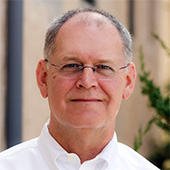Submitted by Wendell Potter on
 Since Supreme Court Justice Antonin Scalia clearly isn't going to take the time to actually read the health care reform law before he decides whether or not it's constitutional, maybe he and a couple of his buddies on the High Court can catch a screening of "The Hunger Games", the movie about children battling each other to the death in a futuristic America, renamed Panem.
Since Supreme Court Justice Antonin Scalia clearly isn't going to take the time to actually read the health care reform law before he decides whether or not it's constitutional, maybe he and a couple of his buddies on the High Court can catch a screening of "The Hunger Games", the movie about children battling each other to the death in a futuristic America, renamed Panem.
"You really want us to go through these 2,700 pages?" Scalia asked during arguments on the constitutionality of the law last week. "Is this not totally unrealistic? That we are going to go through this enormous bill item by item and decide each one?"
He joked that spending time to read the Affordable Care Act before the Court decides its fate would put him in danger of violating the Eighth Amendment's ban on cruel and unusual punishment. LOL, Judge.
Cruel and unusual punishment is crucial to the Hunger Games, but it only lasts 142 minutes and no one in the audience gets hurt, mitigating anybody's risk of violating the Constitution. The movie portrays a government completely disconnected from the people who struggle every day for the most basic elements of survival, including medical care. Only the wealthy residents of the Capitol have access to hospitals and modern medicine, which, fortunately for them, seems to have a cure for everything.
This society-gone-bad scenario of denying basic care to citizens based on their income or social status seems on the big screen not only cruel and unusual but even incomprehensible. I can just hear Justice Scalia asking, again, "Is this not totally unrealistic?"
Guess what, Judge, it's not. In fact, it's occurring every day in what is still called the United States. And if you and your colleagues decide to scuttle ObamaCare, it won't be long before we have PanemCare. For many Americans, we already do.
Don't believe me? Here's an offer. Travel with me later this month to Sullivan County, Tennessee, where I grew up, to witness an event that I'm betting you and other denizens of Washington's northwest quadrant can hardly imagine.
For three days beginning April 13, Remote Area Medical (RAM), an organization that flies American doctors to remote, third-world villages, will be hosting a massive outdoor clinic in the infield of the famous Bristol Motor Speedway. Ironically (or not), Bristol is an Appalachian Mountain town, part of what the Hunger Games calls District 12. The heroine hails from District 12, just like me.
Justice Scalia will have to be an early riser to get the full effect of a scene as surreal as anything Hollywood could dream up. Here's the advice RAM offers on its website about the Bristol event:
"Be sure to arrive early. The clinic opens at 6:00am, and patients are seen on a first-come, first-served basis. Lines can be long and start early in the morning. Numbers will be given out around 3:30am each day prior to the clinic opening. For the best chance of being seen, plan to arrive by 3:30am on the day you wish to receive treatment. Be prepared for cool weather and bring snacks. Once registered, be prepared for long waits before being seen by a doctor."
If you travel to Bristol with me, Judge, I'm almost certain you will be a changed man. You will begin to grasp just how dysfunctional and inequitable the U.S. health care system is and why the law you seem determined to declare unconstitutional was deemed necessary. Just knowing that most of RAM's clinics are now held in the United States rather than third world countries should tell you something.
The highway I traveled to a RAM clinic in Wise, Virginia, in 2007 from my parents' home not far from Bristol turned out to be my Road to Damascus. I was so struck by what I saw -- thousands standing in hours-long lines to get care in animal stalls at the Wise County Fairgrounds -- that I quit my job a few months later and began telling the truth. The truth about how health insurance companies really operate and how bad things really are out there for millions of Americans.
Until that day, I had been able to think, talk and write about the U.S. health care system and the uninsured in the abstract, as if real-life human beings were not involved. But when I witnessed what many citizens must go through to receive basic medical care, I could no longer see them as merely numbers on a spreadsheet.
So Justice Scalia, et al. If it's too much of a chore to actually read one of the most important pieces of legislation that will ever cross your desks -- one that will truly mean the difference between life and death for many -- go see the Hunger Games and travel with me to Bristol. It will be good for your constitution. And it might just save all but the very wealthiest of us from PanemCare.
This article was first published by the Huffington Post. CMD is cross-posting it with the permission of the author, our Senior Fellow on Health Care, Wendell Potter.

Comments
Anonymous Healt... replied on Permalink
You are so right
DinkyDauBilly replied on Permalink
Scalia's humor